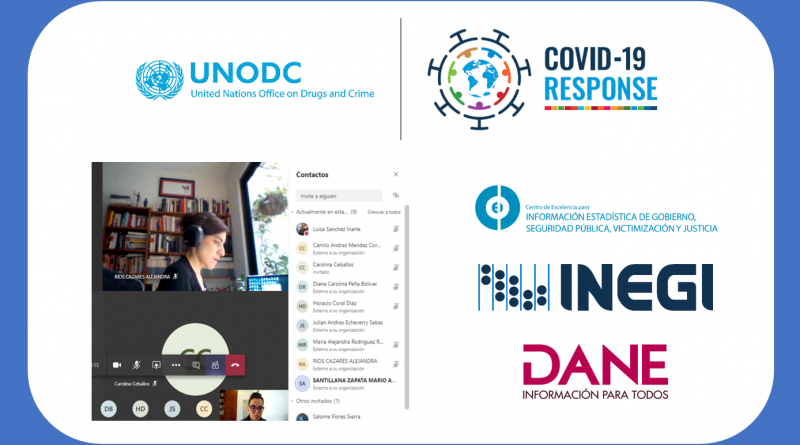UNODC encourages dialogue to discuss the methodological challenges of household surveys due to COVID-19
The global pandemic and especially the contagion prevention measure, the obligatory social distancing, has had a great impact on statistical exercises of National Statistical Offices. Crime Victimization Surveys in Latin America and the Caribbean have not been the exception due to their nature of being collected face to face.
That is why on May 6, the Center of Excellence held a technical discussion with the National Institute of Statistics and Geography (INEGI) of Mexico and the National Statistical Administrative Department (DANE) of Colombia, to exchange thoughts on the implications that the National Survey of Victimization and Perception on Public Security (ENVIPE) and the Survey on Coexistence and Citizen Security (ECSC) have been interrupted, as well as possible alternative ways to avoid losing the historical series of both exercises.
During the exchange, topics discussed included the field work progress until the imposition of mandatory confinement, the methodological and operational implications of their interruption, as well as the possible scenarios for collecting information after the contingency, including the sanitary measures which should be taken into account to protect interviewers and respondents.
A crucial issue in Crime Victimization Surveys is the effect that time can have on the respondent’s memory, due to the so-called telescope effect. This phenomenon is a temporal memory failure: placing an event at a time it did not actually occur. Therefore, it will be of vital importance to find the methodological balance between the effort to rescue the historical series and the reliability of the collected data due to this effect.
UNODC, through the Center of Excellence, promotes international methodological standards for the implementation of Crime Victimization Surveys in the Latin American and Caribbean region, so these dialogues are of vital importance to innovate, adapt and be resilient to this global contingency, leaving no one behind.
For more information on the telescope effect and its impact on Crime Victimization Surveys, see the UNODC Manual on Victimization Surveys (2010) and the worksheet presented by the Bureau of Justice Statistics (BJS) to the Conference of European Statisticians (2006) about the National Crime Victimization Survey (NCVS) of the United States, a country that has been conducting and studying it’s Crime Victimization Survey for more than 40 years.



